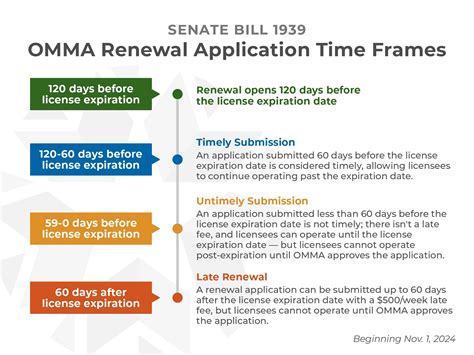Permit Expiration: The Importance of Timely Renewal
Permit expiration is a critical issue that affects a wide range of individuals and businesses. From construction projects to operating a food truck, countless activities require permits, and failing to renew them on time can lead to significant consequences. This article delves into the importance of timely permit renewal, highlighting the potential penalties, legal ramifications, and overall impact of neglecting this crucial task.
Why is Timely Permit Renewal So Important?
Timely renewal of permits ensures legal compliance, protects your business or project from disruption, and safeguards you from potential financial losses. Failing to renew can lead to a cascade of problems, impacting everything from your operations to your reputation.
Maintaining Legal Compliance
The most fundamental reason for timely permit renewal is to remain in compliance with the law. Operating without a valid permit is illegal and can expose you to fines, legal action, and even criminal charges depending on the nature of the permit and the severity of the violation. Different permits have different renewal procedures and deadlines; missing these deadlines can have serious implications.
Avoiding Project Delays and Disruptions
For construction projects, businesses, or events requiring permits, expiration can bring operations to a grinding halt. Inspectors might issue stop-work orders, leading to project delays, increased costs, and potential loss of revenue. Timely renewal ensures a smooth continuation of your work.
Preventing Financial Penalties and Legal Ramifications
Permitting agencies usually impose penalties for late renewal. These penalties can range from late fees to suspension or revocation of your permit, resulting in substantial financial losses. In some cases, legal action may be taken, leading to further costs and reputational damage.
What Happens if You Don't Renew Your Permit on Time?
The consequences of permit expiration vary depending on the type of permit and the local regulations. However, some common repercussions include:
- Fines and Penalties: Expect significant financial penalties for late renewal, potentially escalating the longer you delay.
- Suspension or Revocation: Your permit might be suspended or revoked entirely, forcing you to cease operations until a new permit is issued. This process can be time-consuming and costly.
- Legal Action: In severe cases, legal action might be taken, leading to court appearances and potentially hefty fines.
- Insurance Issues: Lack of a valid permit can invalidate your insurance coverage, leaving you vulnerable to financial ruin in case of accidents or incidents.
- Reputational Damage: Failure to comply with regulations can negatively impact your reputation, making it harder to secure future permits or contracts.
How to Avoid Permit Expiration: A Proactive Approach
Proactive planning is key to avoiding the problems associated with permit expiration. Here’s what you can do:
- Mark your calendar: As soon as you receive your permit, mark the renewal date on your calendar and set reminders well in advance.
- Understand the renewal process: Familiarize yourself with the requirements and procedures for renewing your specific permit. Contact the issuing agency if you have any questions.
- Gather necessary documentation: Ensure you have all the required documents ready well before the renewal deadline.
- Submit your application early: Don't wait until the last minute. Submit your renewal application well in advance to avoid processing delays.
- Keep records: Maintain accurate records of your permits and their renewal dates. This will help you stay organized and avoid costly mistakes.
What are the different types of permits that require renewal?
The types of permits that require renewal are numerous and vary widely depending on location and activity. Common examples include:
- Building Permits: These are essential for any construction, renovation, or demolition project.
- Business Licenses: Many businesses need licenses to operate legally, and these often require annual renewal.
- Food Service Permits: Restaurants and other food establishments require permits to ensure food safety and hygiene standards are met.
- Environmental Permits: These permits regulate activities that might impact the environment, such as waste disposal or industrial emissions.
- Event Permits: Organizing events, like concerts or festivals, often necessitates permits from local authorities.
How often do I need to renew my permit?
The frequency of permit renewal varies greatly, depending on the type of permit and local regulations. Some permits need annual renewal, while others may be valid for several years. Always check the specific terms and conditions of your permit for the renewal schedule.
What are the penalties for late permit renewal?
Penalties for late permit renewal vary depending on the jurisdiction and the type of permit. They can range from simple late fees to significant fines, suspension, or revocation of the permit. In some cases, legal action may also be taken.
In conclusion, timely permit renewal is not merely a bureaucratic formality; it's a crucial step in maintaining legal compliance, avoiding disruptions, and protecting your interests. By proactively managing your permits and understanding the potential consequences of non-compliance, you can ensure a smooth and successful operation.

